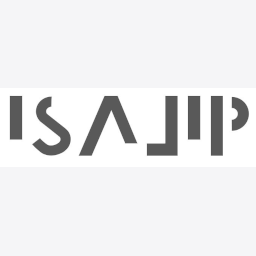Projekthintergrund
Bei dem Projekt „ISALIP – Information Security Awareness, Literacy, and Privacy“ arbeitete das BF/M-Bayreuth – zusammen mit dem eCampus-Lausitz (Cottbus, Deutschland) und der Mykolo Romerio Universitetas (Vilnius, Litauen) .
Projektziele
Das Projekt ISALIP zielte darauf ab, die Bereitschaft der europäischen Bürger für das digitale Zeitalter zu verbessern. Das individuelle Bewusstsein für Informationssicherheit wurde ebenso gestärkt wie zugehörige Kompetenzen und das Risikomanagement in beruflichen und privaten Kontexten. Die Netzwerkbildung von Experten aus den Partnerländern sowie insgesamt auf europäischer Ebene wurde forciert.
Zum einen sollte die Netzwerkbildung die bestehenden Diskussionen über Identität im Bereich der Informationssicherheit kontextualisieren und für transnationalen Austausch zwischen Praktikern und Entscheidungsträgern aus Praxis, Forschung und den spezifischen Regionen sorgen.
Zum anderen knüpfte die Projektgruppe an die Arbeit des vorangegangenen ERASMUS+ Projekts “TeBeISi – Teilzertifizierung in Vocational Education and Training” an, um eine Diskussion innerhalb des Expertennetzwerks über gute Sicherheitspraktiken und -vorteile für die Ausbildung von Bürgern in der allgemeinen und beruflichen Bildung sowie im Hochschulbereich zu diskutieren. Insbesondere die vorgeschlagene Kombination von Hochschulbildung und berufsbezogenem Lernen wurde kritisch analysiert.
Für das ISALIP-Projekt war eine zentrale Zielstellung die Anforderungen im Bereich Informationssicherheit für Unternehmen in einer Europaregion zu analysieren und praktische Tools zur Bewältigung dieser zu entwickeln. Aus diesen Tools sollten dann Ansprüche an Mitarbeiter im beruflichen und privaten Kontext erarbeitet werden.
Letztlich sollte ISALIP die Verbreitung und Bewusstseinsbildung für die Bedeutung der Informationssicherheit für Bürger und Angestellte gleichermaßen unterstützen. Die ISALIP-Ergebnisse
sollten somit der Vorbereitung einer größeren Anwendung im Bereich “Smart Citizen” und der Aneignung digitaler Fähigkeiten vorbereiten.
Projektablauf
Das ISALIP-Projekt analysierte in einem ersten Schritt die Anforderungen an KMU im Bereich der Informationssicherheit im allgemeinen sowie im speziellen bzgl. eine Markteintritts in ein anderes EU-Land und die Aktivität in einer internationalen Lieferkette. Damit folgte das Projekt den besonderen Erfordernissen von Mittelständlern in einer Europaregion, hier kann ein besonderes Interesse an bspw. einer Produktion oder dem Vertrieb in einem Nachbarland unterstellt werden. Es wurde so – als zentrales Element der ISALIP Seeding Materials – ein Guide for SME entwickelt, der weiterhin einen Überblick über Akteuere und Rahmenwerke in den betrachteten Ländern und auf europäischer Ebene sowie die kommenden EU-Regularien Cyber Resilience Act (CRA) und NIS2-Directive gibt.
Insgesamt wurden in ISALIP vier Aktivitäten durchgeführt:
- Analyse und leicht-verständliche Konsolidierung der Rahmenwerke, Vorschriften und Akteure im Bereich Informationssicherheit in den Projektpartnerländern, die sowohl für KMU als auch für Bürger relevant sind.
- Durchführung von Lead-User-Workshops mit Experten aus der DACH-Region und dem Baltikum, um die Erfahrungen und die Erkenntnisse aus Aktivität 1 im Kontext der beruflichen Bildung zu diskutieren und Best-Practices zu identifizieren.
- Entwurf eines Lehrplankonzeptes auf Basis der Integration von Praxisanwendern bezüglich der vorhandenen Datenkompetenz, der Informationssicherheitsmaßnahmen und identifizierter Schwachstellen.
- Verbreitung der Projektergebnisse in den Projektpartnerländern.




